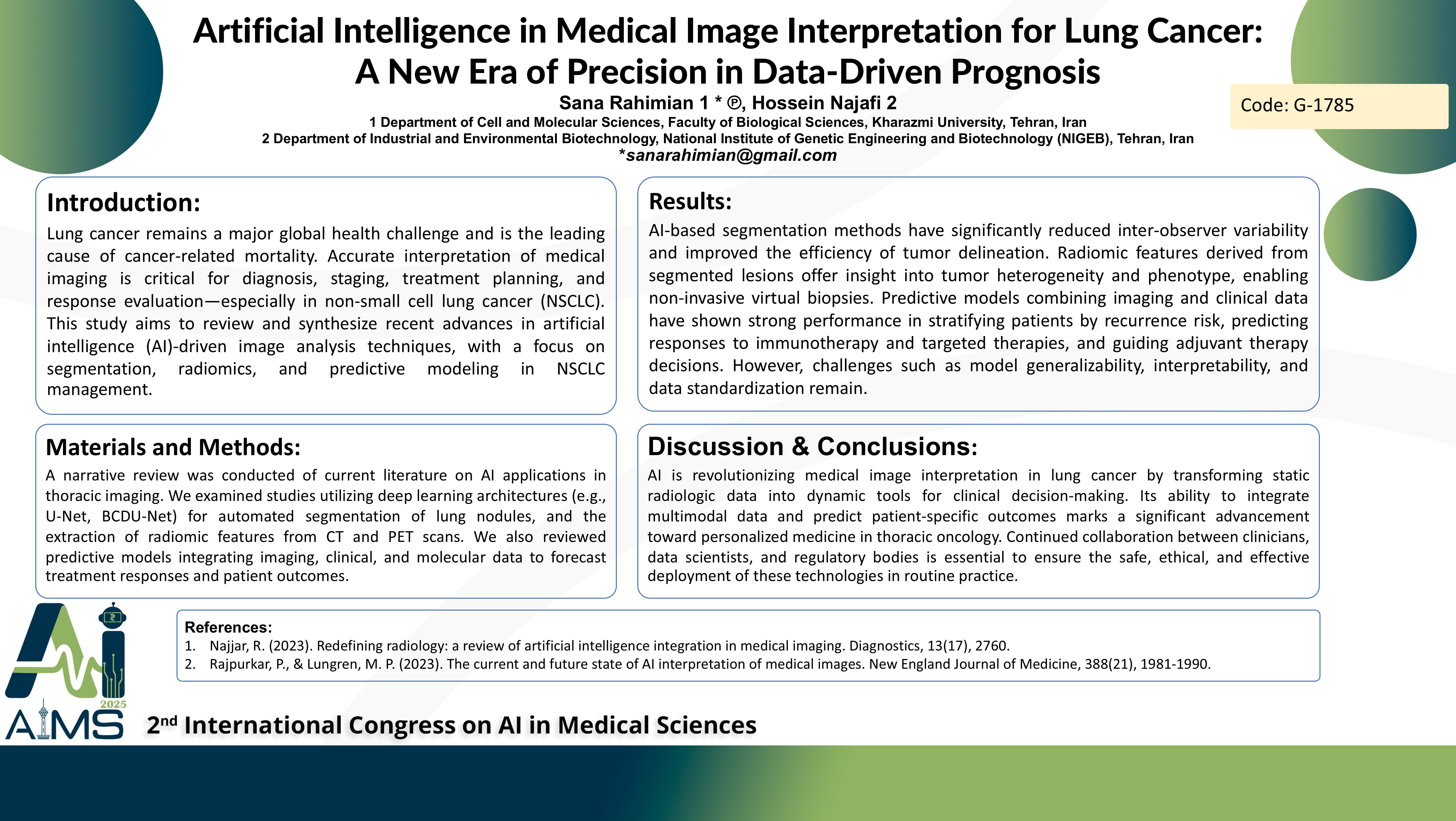هوش مصنوعی در تفسیر تصاویر پزشکی برای سرطان ریه: آغاز عصری نو در پیش تشخیص دادهمحور
کد: G-1785
نویسندگان: Sana Rahimian * ℗, Hossein Najafi
زمان بندی: زمان بندی نشده!
برچسب: پردازش سیگنال های پزشکی
دانلود: دانلود پوستر
خلاصه مقاله:
خلاصه مقاله
Background and Aims: Lung cancer remains a major global health challenge and is the leading cause of cancer-related mortality. Accurate interpretation of medical imaging is critical for diagnosis, staging, treatment planning, and response evaluation—especially in non-small cell lung cancer (NSCLC). This study aims to review and synthesize recent advances in artificial intelligence (AI)-driven image analysis techniques, with a focus on segmentation, radiomics, and predictive modeling in NSCLC management. Methods: A narrative review was conducted of current literature on AI applications in thoracic imaging. We examined studies utilizing deep learning architectures (e.g., U-Net, BCDU-Net) for automated segmentation of lung nodules, and the extraction of radiomic features from CT and PET scans. We also reviewed predictive models integrating imaging, clinical, and molecular data to forecast treatment responses and patient outcomes. Results: AI-based segmentation methods have significantly reduced inter-observer variability and improved the efficiency of tumor delineation. Radiomic features derived from segmented lesions offer insight into tumor heterogeneity and phenotype, enabling non-invasive virtual biopsies. Predictive models combining imaging and clinical data have shown strong performance in stratifying patients by recurrence risk, predicting responses to immunotherapy and targeted therapies, and guiding adjuvant therapy decisions. However, challenges such as model generalizability, interpretability, and data standardization remain. Conclusion: AI is revolutionizing medical image interpretation in lung cancer by transforming static radiologic data into dynamic tools for clinical decision-making. Its ability to integrate multimodal data and predict patient-specific outcomes marks a significant advancement toward personalized medicine in thoracic oncology. Continued collaboration between clinicians, data scientists, and regulatory bodies is essential to ensure the safe, ethical, and effective deployment of these technologies in routine practice.
کلمات کلیدی
Artificial Intelligence, Lung Cancer, Medical Imaging
